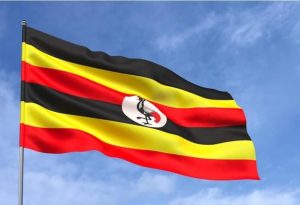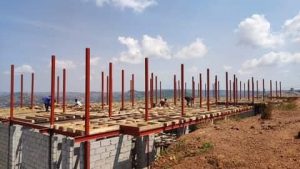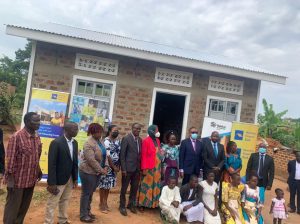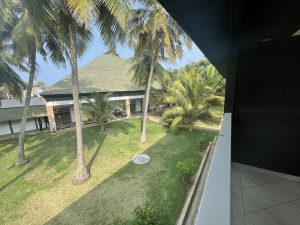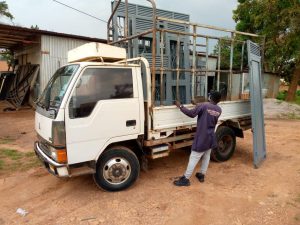
#OutToLunch Lift ban on Facebook to enable small businesses access markets
#OutToLunch Lift ban on Facebook to enable small businesses access markets By Denis Jjuuko Last week, the world commemorated the International Day of the Girl for the 10th year since the United Nations started marking this day. The theme for this year is “Our time is now —our rights, our future.” The future for most of these girls and young women will increasingly be through easy and affordable access to technology either for their education or businesses. As the world was commemorating this day, the Uganda Revenue Authority (URA) was also indicating that it has started charging 18% VAT to companies like Facebook for any advert paid for by people in Uganda. Nothing wrong with URA collecting more taxes but Facebook at the moment is banned and only used illegally by people using Virtual Private Networks or VPNs. Yet if you speak to these people including the entrepreneurial young women, the majority of their sales come from platforms like Facebook, Instagram and WhatsApp, all products owned by Meta. The WhatsApp Status is a great marketing tool. Reels on Instagram and Facebook provide a wonderful avenue through which small businesses can advertise almost at no cost. For those who are creative with videos, TikTok’s rise over the last few years is providing brand exposure that you can’t even begin to imagine. Media houses have their job well cut out. Anyway, the revenue collections have dwindled as the economy suffers from the effects of the pandemic and the war in Ukraine among others. Inflation is rising at the speed of a formula one car! Posho, a foodstuff once considered for the poor can now only be afforded by the middle class. Delays in payment of salaries are the order of the day with even district administrative officers writing letters to their staff announcing delays to receive money from the treasury. So if the government itself is struggling to pay recurrent expenses such as salaries, imagine the challenges small businesses face. Many people will simply be laid off. Now, imagine what young women who own these small businesses who already face many barriers that hinder their entrepreneurial journeys are going through. Many of them started businesses not really because they wanted to but because of failure to access quality education due to many reasons including teenage pregnancy. Many young people finishing school today are turning to self-employment as traditional jobs have increasingly become difficult to find yet the hardest work one can ever do is starting their own businesses. Forget the glamour that some entrepreneurs talk about. The hustle of sustaining a business is not for the faint hearted. That is why the majority of businesses that are started in a year, don’t live long enough to celebrate their 5th birthday. Yet these are the businesses that have the potential to employ the majority of people. Today, many young people are working as influencers on social media platforms earning a living to push brands, events and even some causes. Others have started shows on Twitter Spaces and YouTube, enabling them to earn. Many of these influencers are young women. The cost of data is expensive and I have heard VPNs make it more expensive on top of draining the batteries, thereby requiring more money to pay to access electricity. So unbanning companies like Facebook might not be an issue that massages our ego but it is the right thing to do. That way we can enable young women have access to a platform that enables them to make sales through which URA would actually collect more taxes. I believe URA would collect more taxes from small businesses growing because they have access to technology than charging VAT on small transactions that people pay to Facebook (that doesn’t mean Facebook shouldn’t be taxed). So if technology is the future for young people, issues of access must be dealt with. Affordable devices such as tablets and smartphones, availability of high-speed internet and the cost of data itself must be addressed. Data bundles that are affordable and aren’t pegged to a number of days are important if girls and young women are to consider this as their time and future. Companies like Facebook, Amazon, Twitter and Google among others that provide easy access to markets shouldn’t be banned because of some political shenanigans rather reprimanded. Europe has never banned Google or Microsoft for their law breaches because it knows their role in enabling businesses, it simply heavy fines them. The writer is a communication and visibility consultant. djjuuko@gmail.com

